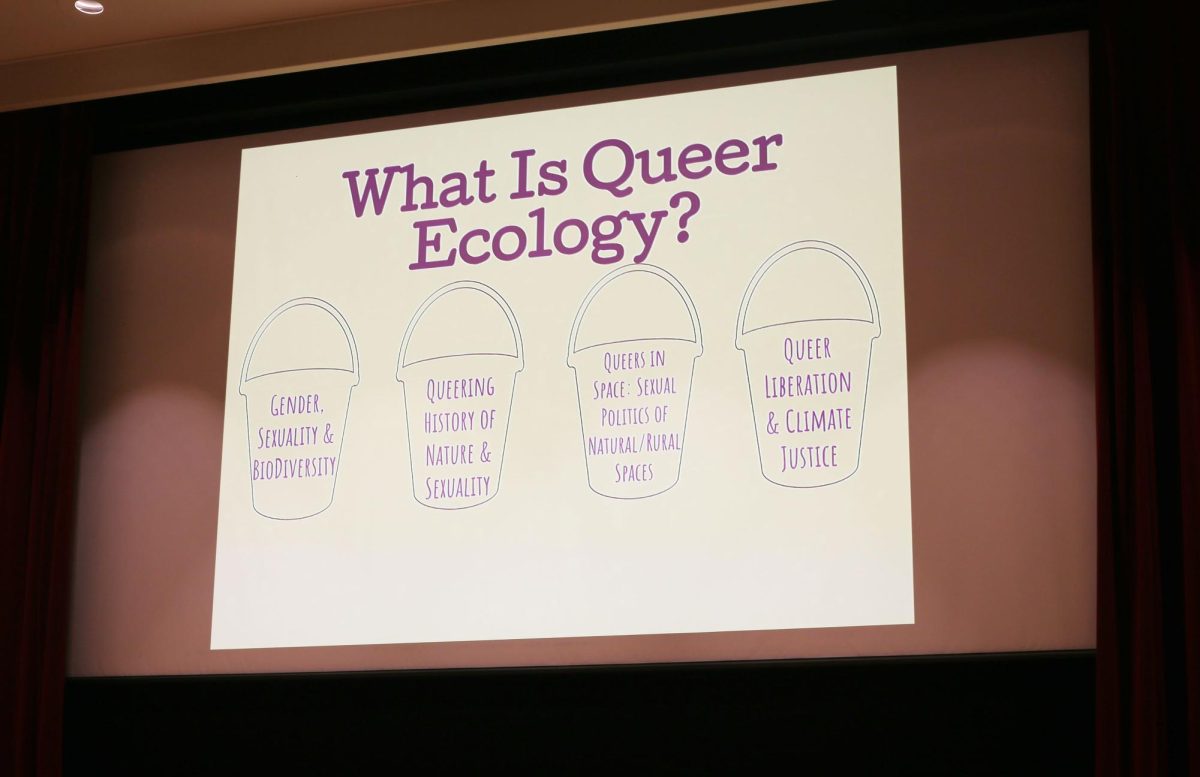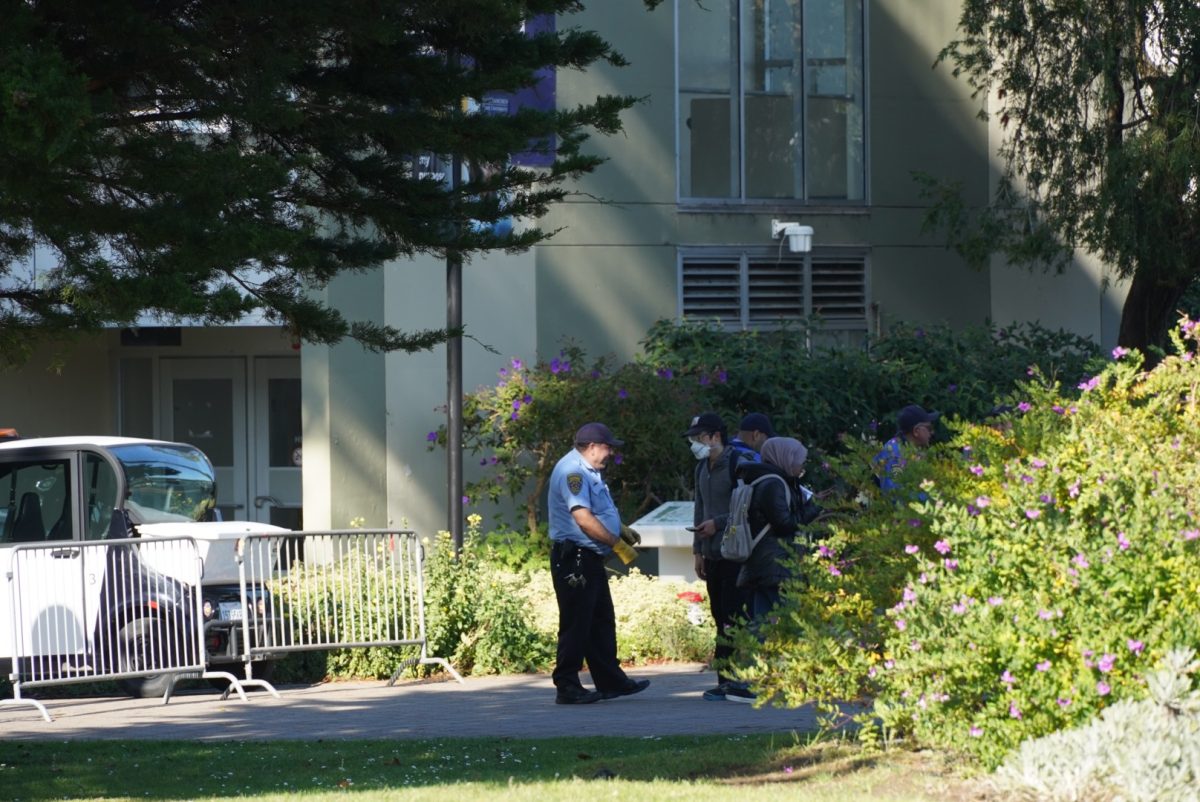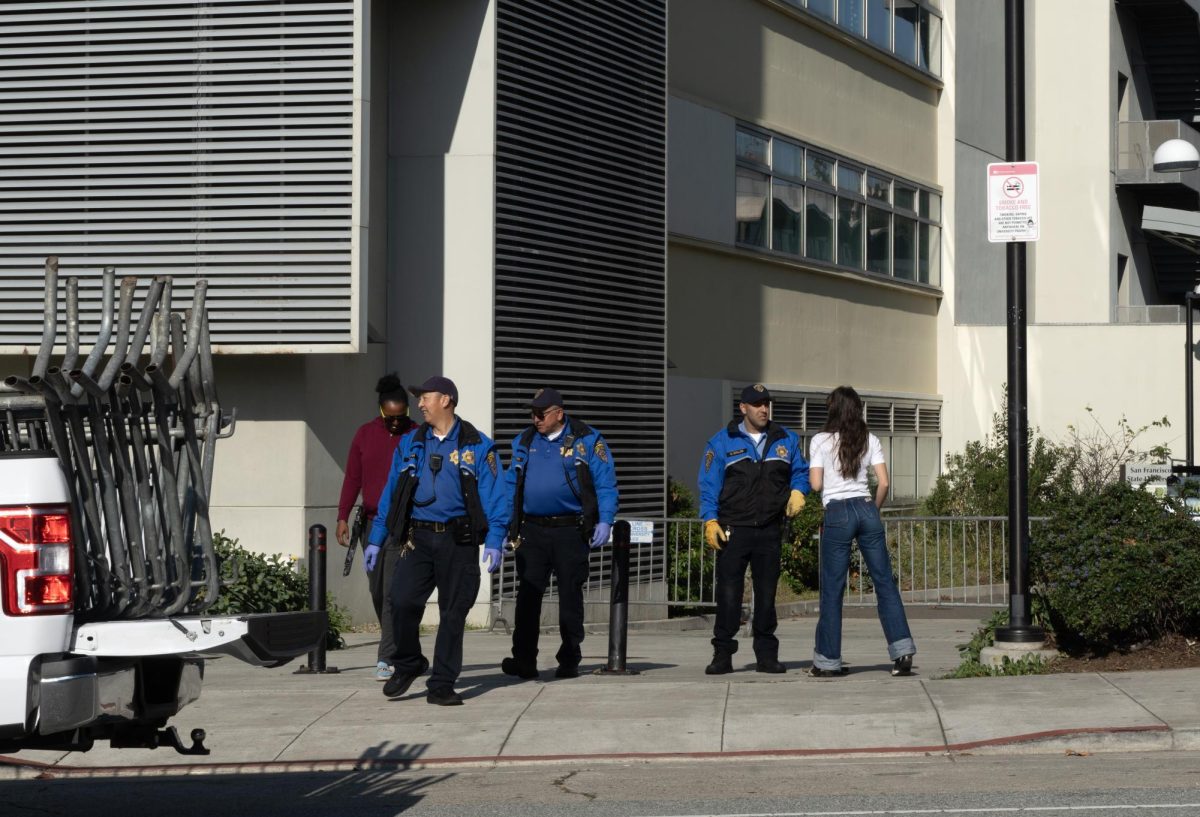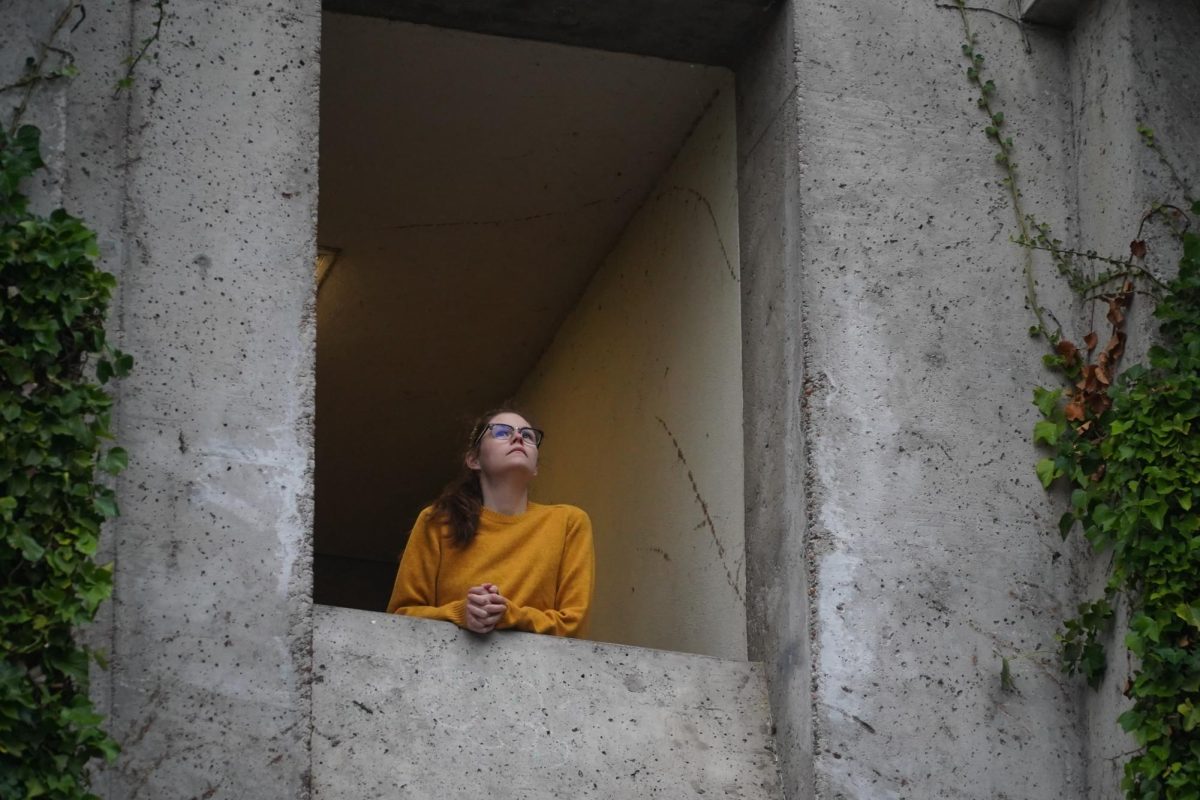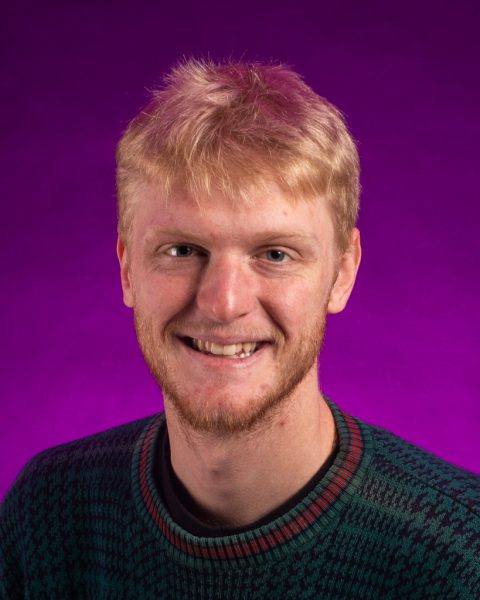Nature’s ability to ignore barriers is one way to connect queer ideology with climate justice initiatives. The “Can’t Stop Change: Queer Climate Stories from Florida’s Frontline” screening event began with providing 15 examples of how nature abhors categories.
Nature exhibits its diverse spectrum of identities, from fish capable of changing sex to thousands of species of fungi and asexually reproducing geckos, all highlighting the richness of its queer identity.
Around 50 staff and students gathered in Knuth Hall for the screening. Following the film was a Q&A with filmmaker Natalia Villarán Quiñones, followed by an interactive workshop led by Deseree Fontenot from the Queer Ecojustice Project and Movement Generation.
The Race and Resistance Department, Climate HQ, Environmental Resource Center, School of Cinema Marcus Endowed Chair, Queer Trans Resource Center and Haüs BlàQue organized the event.
Gopal Dayaneni, a Race and Resistance Studies professor, helped organize the event and is friends with Quiñones and Fontenot. He emphasized that the collaboration among numerous student organizations on campus heightened the event’s significance, forging a tangible link between LGBTQ members and those engaged in organizing efforts surrounding the climate crisis.
“There is a wisdom that the living world gives us about how to rethink how we organize our relationships to each other,” Dayaneni said.“So life itself can benefit a lot from bringing this sort of queer lens.”
Amber Milano, a sophomore studying environmental justice, said she was unsure of how to interpret Queer Ecology as a concept.
“I’m looking forward to seeing how those two ideas intertwine,” Milano said. “Just seeing it from a different lens is something that’s really interesting about learning about climate change.”
Dayaneni described how queer and transgender people have the lived experience of the world not working for who they are. Navigating the contradictions of being one way while having the world tell you to be another is a practice of patience and sustainability. Applying a queer-informed approach to the climate crisis has changed his understanding of the issue.
“That wisdom is the wisdom we need to transition out of an economy that’s just basically failing and instead live in a way where we can be right with each other, right with ourselves and right with everyone around us,” Dayaneni said. “I have really benefited from the way in which queer politics and queer analysis has increased my tolerance for complexity and helped me see diversity everywhere as valuable and is essential for wellbeing.”
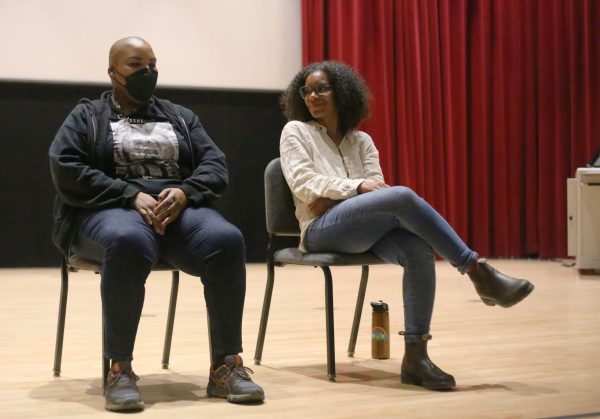
“Can’t Stop Change: Queer Climate Stories from Florida’s Frontline” focuses on stories of queer-identifying individuals dealing with the climate crisis in Florida. A prominent theme within the film is the connection both queer people and the crisis climate have through restrictive lawmaking in Florida.
Quiñones directed the film, serving as an interviewer for subjects throughout the film.
“Understanding Florida is very complex with its people and history,” Quiñones said. “Just thinking about all of the communities that I’m connected to and the similarities and the differences is so important. We are here in the state right on the front line.”
Quiñones also mentioned that half of all money donated to the film goes to mutual aid directly benefiting LGBTQ people in Florida. She said the goal throughout this film was to start a dialogue conversation and represent the LGBTQ experience in Florida.
“What we need to do is start building these potential bridges to exchange information and vocabulary so we can speak the same language to organize and reach out to one another,” Quiñones said.
Fontenot reiterated similar concepts during her workshop, primarily emphasizing the potential impact of queer identity and experiences on the ongoing climate crisis.
Fontenot is an activist and representative from both the Queer Ecojustice Project and the Movement Generation Justice & Ecology Project.
The Queer Ecojustice Project began in 2016 as a reading group but has expanded into a community organization cultivating academic resources and localized groups for queer people to bring conservation to their community.
Movement Generation is a company that was started in San Francisco. The company’s Justice & Ecology project provides resources and collaborative settings for students and professionals to engage in the restoration of land, labor and culture.
Nicole Luna is an environmental justice major in her last year at SFSU. After attending the event, she found the film and workshop informative and interesting.
“I really understand the connection between queer identity, ideology and environmental justice. I think the film was so important for providing this perspective from first-hand perspectives,” Luna said.




